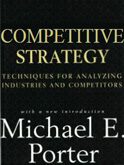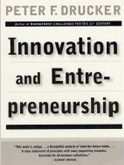Good thinkers are always in demand. A person who knows how may always have a job, but the person who knows why will always be his boss. Good thinkers solve problems, they never lack ideas that can build an organization, and they always have hope for a better future. Good thinkers rarely find themselves at the mercy of ruthless people who would take advantage of them or try to deceive them, people like Nazi dictator Adolf Hitler, who once boasted, …
ادامه مطالبزبان اصلی
Know What You Don’t Know
In the spring of 2005, former Secretary of Defense Robert McNamara came to speak to my students. At the time, I served on the faculty at Harvard Business School. My colleague Jan Rivkin and I invited McNamara to answer our MBA students’ questions about his years in the Defense Department as well as his time at Ford Motor Company and the World Bank
ادامه مطالبCompetitive Strategy
When Competitive Strategy was first published eighteen years ago, I hoped that it would have an impact. There were reasons to hope, because the book rested on a body of research that had stood the test of peer review, and the draft chapters had survived the scrutiny of my MBA and executive students. The reception of the book and the role it has played in launching a new field, however, exceeded my most optimistic expectations. Most business school students around …
ادامه مطالبCompetitive Advantage
Now beyond its eleventh printing and translated into twelve languages, Michael Porter’s The Competitive Advantage of Nations has changed completely our conception of how prosperity is created and sustained in the modern global economy. Porter’s groundbreaking study of international competitiveness has shaped national policy in countries around the world. It has also transformed thinking and action in states, cities, companies, and even entire regions such as Central America. Based on research in ten leading trading nations, The Competitive Advantage of …
ادامه مطالبInnovation And Entrepreneurship
Since the mid-seventies, such slogans as “the no-growth economy,” the “deindustrialization of America,” and a long-term “Kondratieff stagnation of the economy” have become popular and are invoked as if axioms. Yet the facts and figures belie every one of these slogans. What is happening in the United States is something quite different: a profound shift from a “managerial” to an “entrepreneurial” economy. In the two decades 1965 to 1985, the number of Americans over sixteen (thereby counted as being in …
ادامه مطالب گنجینه های مدیریت وب سایت رسمی مهندس افسریان
گنجینه های مدیریت وب سایت رسمی مهندس افسریان




